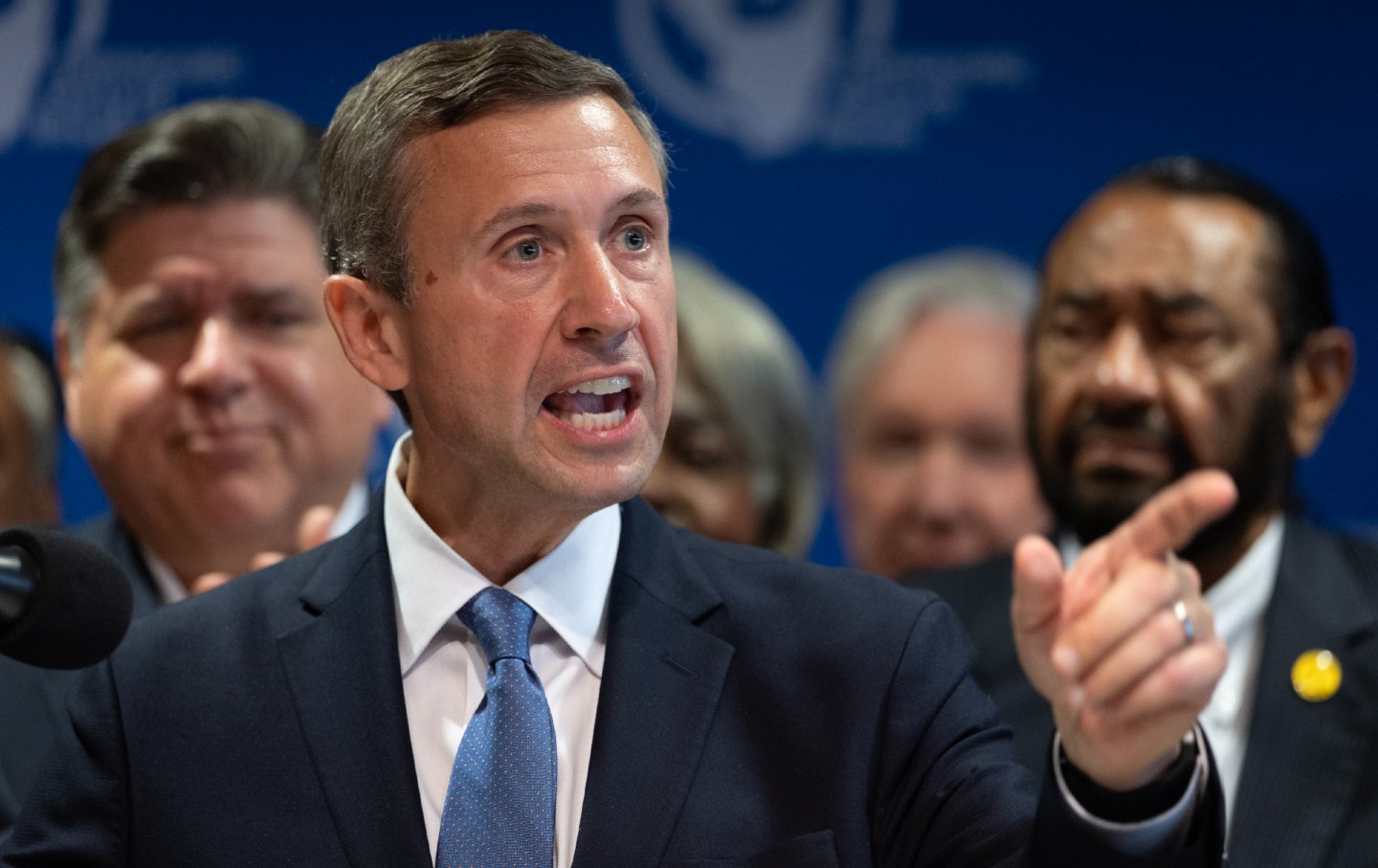August 22, 2025
Party building vs. candidate addiction has never been more urgent.

DNC Chair Ken Martin has proposed nine reforms for consideration by the approximately 450 members at the upcoming meeting on August 27. Most importantly, Martin is proposing a resolution stating that the DNC is “committed to eliminating unlimited corporate and dark money in our presidential nominating process beginning in the current 2028 cycle.”
Previously, DNC leaders and the Biden White House have been unwilling to discuss this issue. The party “line” has been to oppose the 2010 Supreme Court decision in Citizens United, equating election donations as a form of free speech but do nothing to regulate corporate and dark money (funds from undisclosed donors) in the party’s nominating process. About 80 percent of House seats are one-party seats, so the primary is the only meaningful election. Big money has often weighed in on behalf of centrist Democrats and against progressives.
Independent expenditures (IE) are funds spent by corporations and organizations independent of the candidate’s campaign. In 2024, IEs hit new highs as millions of dollars poured into several districts in the weeks before primary elections, demonizing leading Democratic candidates. This was a mix of corporate independent expenditures led by crypto corporate funds and IEs provided by “groups” with names that hid not only the donors but the real mission of those groups. These expenditures legally cannot be coordinated with the candidate’s campaign, but nothing prevents the corporate or organizational funders from interviewing candidates on the issues and then supporting candidates who support the funders on those issues.
For those of us focused on progressive social change, this spending has blocked candidates committed to our entire agenda including workers’ rights, a Gaza ceasefire, financial reform, rent control, Medicare for All, and renewable energy. The Congressional Progressive Caucus that had been advancing toward a majority of the Democratic Party Caucus has now seen incumbents defeated and new progressive candidates blocked by the onslaught of money from crypto, fossil fuel and an endless parade of corporate spending, the American Israeli Political Action Committee and other right-wing groups, as well as Republican billionaires.
Martin’s resolution would ask the DNC Committee on Reforms to identify specific steps the DNC can consider in 2026 that would limit big money in the 2028 presidential primary process. The DNC has acted in previous cycles, sidelining delegates from states violating DNC rules and establishing ground rules for candidates that can participate in presidential debates. In 2020, candidates were required to sign a party pledge affirming their membership and support for the Democratic Party. Similarly, candidates could be required to sign some version of the “People’s Pledge” agreed to by Elizabeth Warren and Scott Brown in the 2012 general election for the US Senate. The “People’s Pledge” required a candidate benefiting directly or indirectly from big-money independent expenditures to donate a similar amount from their campaign funds to a designated charity. Campaign funds are far more valuable than IE money, providing a powerful deterrent.
The state and territorial Democratic parties are separate legal entities and similar action for their primaries requires action by each of them. Martin’s resolution encourages that. Such action is independently underway in several states. Resolutions limiting independent expenditures in their primaries and setting up similar study and implementation steps have been adopted by the North Carolina and Arizona parties. State parties have elaborate and varied policies for nominating candidates, and in some cases county and municipal parties regulate the nominating process within their jurisdictions.
Current Issue

Reform at the state and county level requires interested Democrats to organize support. All too often we pay little attention to the rules and too much attention to the candidates. Elected Democrats, and past and potential candidates should also champion these reforms by state parties and the DNC. Party donors should be focused on defeating Republicans and supporting Democratic Party nominees chosen by voters without the impact of big money. Until we repeal Citizens United, reform proponents are not seeking to limit independent expenditures in the general election, faced by huge sums of corporate money and billionaire donors supporting Republican candidates. But primaries are another thing altogether.
Party building versus candidate addiction has never been more urgent. Grassroots organizing inside the party bureaucracy and outside is critical if we are to stay focused on politics as a means to the changes we want to see, and not a team sport. Limiting big money in the nominating process is an essential step in a plan for real change. Ken Martin is demonstrating his own leadership in this effort. Now we all need not only to support him but to bring a similar message to grassroots voters and activists across the nation.
In this moment of crisis, we need a unified, progressive opposition to Donald Trump.
We’re starting to see one take shape in the streets and at ballot boxes across the country: from New York City mayoral candidate Zohran Mamdani’s campaign focused on affordability, to communities protecting their neighbors from ICE, to the senators opposing arms shipments to Israel.
The Democratic Party has an urgent choice to make: Will it embrace a politics that is principled and popular, or will it continue to insist on losing elections with the out-of-touch elites and consultants that got us here?
At The Nation, we know which side we’re on. Every day, we make the case for a more democratic and equal world by championing progressive leaders, lifting up movements fighting for justice, and exposing the oligarchs and corporations profiting at the expense of us all. Our independent journalism informs and empowers progressives across the country and helps bring this politics to new readers ready to join the fight.
We need your help to continue this work. Will you donate to support The Nation’s independent journalism? Every contribution goes to our award-winning reporting, analysis, and commentary.
Thank you for helping us take on Trump and build the just society we know is possible.
Sincerely,
Bhaskar Sunkara
President, The Nation


